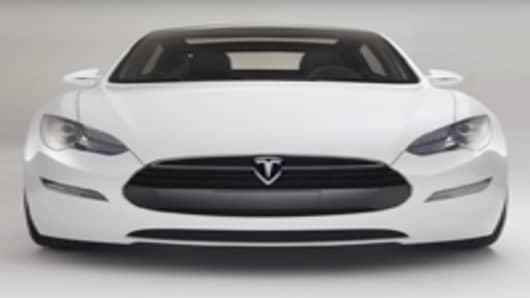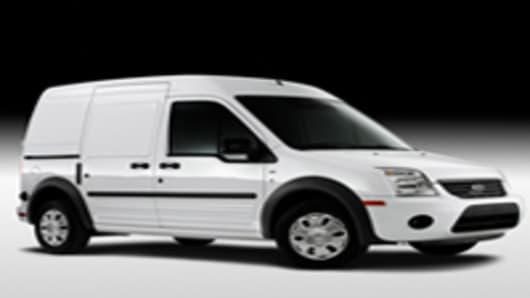Welcome to the electric car race.
Automakers, both big—like Ford and General Motors—and small, like CODA Automotive, will launch electric vehicles as soon as this year to ride the consumer shift to smaller, greener cars.
Tesla Motors, a Palo Alto, Calif.-based automaker, was the first to prove that it was possible to produce a fully-electric car. Tesla filled for an initial public offering last week, the first for a U.S. automaker sinceFord went public in 1956.
“Tesla inspired the likes of GM to get into the electric car market,” says Bradley Berman, editor of HybridCars.com and PluginCars.com. “Now, every major automaker has some kind of plug-in vehicle in the works."
Tesla plans to halt production on its signature Roadster (which costs $109,000) for the Model S, a four-door electric car at a more affordable price: $57,400. The company expects the vehicles to hit the road in 2012 and says 2,000 of the first Model S cars had been reserved with a $5,000 refundable payment.
With the Roadster, Tesla had the only highway safe electric vehicle available for the past two years. That's about to change.
Nissan is planning to release its fully electric car, Leaf, late this year.
General Motors will introduce its car, the Chevrolet Volt, at the end of this year. Unlike the Leaf, the Volt has both an electric engine and a backup gas engine for longer trips when recharging isn't an option.
Pricing for both vehicles has not been announced, but experts expect a $35,000-$45,000 range.
Toyota brought its concept FT-EV to this year’s North American International Auto Show and plans to bring the small, commuter car to market in 2012.
Daimler’s Smart USA division is readying 1,000 Smart Electric Drives, at the end of 2010 for the U.S. and European markets. A larger production of the vehicle will start with its 2012 model.
Both the FT-EV and the Electric Drive are not yet priced.
Smaller startup companies are also looking to cash in. CODA Automotive will launch what it calls an affordable, all-electric, four-door sedan later this year, but it has yet to disclose pricing. Fisker Automotive is taking orders for its Fisker Karma, an $87,900 plug-in hybrid car that is expected to be ready in late 2010.
Three Ways To Go
Electric cars generally come in three different formats.
There’s the full electric, like the Nissan Leaf, that needs to be charged when the battery is depleted. These have zero emissions.
The plug-in hybrid uses electricity and gas simultaneously to move the vehicle, according to the Electric Drive Transportation Association.
The third variety, the extended range electric vehicle, like the Volt, uses electric power until the battery is depleted, then uses a small gas engine.
For some consumers, those differences are bigger than they might seem.
Jeff Bennett, an associate professor at Northwood University who teaches automotive management and marketing, says "range anxiety" is common among consumers, who are worried that they'll drive too far, run the battery out of juice and get stranded.
But Bennett says most full-electric cars are suitable for the commute of the average American, who can plug-in the vehicle at home and charge it overnight. Nissan's Leaf, for example, will have a 100-miles, electric power range.
"The electric battery is for customers who drive repeatable distances," says Nancy Gioia, director of global electrification at Ford.
Ford will be launching the Transit Connect, a fully-electric van later this year with an 80-mile range. The van is targeted at commercial users, like flower or food delivery companies, that travel short drives and can return the vehicle to its home base periodically for recharging.
In 2011, the Ford Focus Electric (a full electric) passenger car will be rolled out, followed by a plug-in hybrid in 2012.
While consumers might fret over whether they'll be able to drive electric cars without getting stranded, Bennett thinks they'll ultimately be won over by savings.
"With pure electric cars there's virtually no maintenance and no oil to change," he says. "Maintenance costs are way lower." (Most consumers will also be eligible for a tax credit of up to $7,500 for buying a plug-in electric vehicle.)
Despite all the flurry of new models, it will be some time before all-electric vehicles become ubiquitous on the roads of America. Most companies are manufacturing and producing a limited number of cars before moving to a mass production model. Ford, for instance, will manufacture just 10,000 of the Focus model and 5,000-10,000 of the vans.
“There will be more demand for electric vehicles than supply for a couple of years,” says Berman.



